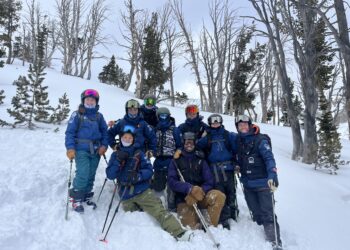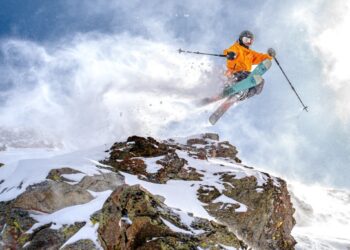
By Todd Wilkinson EBS Environmental Columnist
No race, culture or movement is a monolith. It’s as true for political parties, organized religions and universities as it is for smaller subsections of society, such as the resource extraction industry, outdoor recreation industry, hunting community, ranching community, and, of course, professional environmentalism.
As Americans and Westerners, we all dwell in different silos on the same increasingly fractured landscape.
In 2014 when he came to Bozeman, Edward O. Wilson, the Harvard scientist widely heralded for his studies of ants, delivered a stark message to younger minds at Montana State University: Don’t let humankind transform the Earth into the equivalent of a giant ant farm.
Set aside half of what remains of the unexploited planet, he said. Do it with conscious deliberateness aided by the best available science; do it for the continued evolution of nature; do it for the future; do it to prove humans are capable of restraining our, so far, unquenchable hunger to conquest every inhabitable corner of the biosphere.
Do it, he said, to defy the cynics who believe we are incapable of thinking long-term and who claim that, as a result, we are doomed. These are the ideas presented in Wilson’s recent book “Half-Earth.”
Doing things until we reach the point of crisis is a flawed trait, Wilson noted in Bozeman, causing the sixth major species extinction episode (the only one linked to the destructive dominance of a single animal—us) and which has already resulted in half of the world’s other wildlife having disappeared since 1970.
Wilson is not one who stands in awe of the age that has been proclaimed “the Anthropocene”—the final epoch in which nature herself perseveres only in service of human needs.
Today, there are some well-known conservation organizations that not only seem to believe pristine “self-willed” landscapes are a delusion, but they are convinced resistance to human manipulation of nature is futile.
Therefore, the argument goes, we must resign ourselves to a “post-wild” world—true wildness having been stripped away by various forms of domestication—and nature now should be approached as a “rambunctious garden” guided by our astute husbandry.
Not only do E.O. Wilson and other prominent thinkers reject this proposition as being both arrogant (that we humans believe we are omniscient in our understanding of nature) and naïve (in failing to realize we aren’t) but a growing pushback is building among environmentalists, scientists, and philosophers.
They’re rising to the defense of wilderness, challenging the politically-correct assertion that national parks—because indigenous people were cleared from them—are racist and outdated, and they’re pointing fingers at venerable environmental organizations, which, they say, have lost their way.
The charges are spelled out in a provocative book titled “Keeping the Wild: Against the Domestication of Earth” that features a series of guest essays edited by George Wuerthner, Eileen Crist and Tom Butler.
In its main indictment, the book says that “new conservationists,” also referenced as “neo greens,” have become co-opted by corporations, including resource extraction firms that are hardly friends of the earth. Companies make huge contributions to support national groups, and, in some cases, have their CEOs serving on the boards of directors.
Once-formidable conservation powerhouses that used to go to the mat to protect what remains of untrammeled wild country, the authors say, now embrace consensus because that’s what their conflict-averse funders are telling them to do.
The result has been a loss of effectiveness and led to votes of no confidence even in local conservation organizations from their formerly loyal citizen members.
In a recent review of “Keeping the Wild,” Stuart Pimm, the eminent professor of conservation biology at Duke University, said he knows employees inside a large conservation organization who are alarmed by the group’s leadership direction.
While many Americans may not recognize it, there is a civil war brewing within the environmental/conservation movement. Though some would suggest that’s a bad thing, it’s actually healthy and badly needed.
The green movement that rose as a force to contend with on the first Earth Day in 1970 had the wind of a moderate, common sense, and ecologically-literate Congress at its back.
Reasonable Republicans and Democrats passed the most forward-thinking environmental laws in human history—and those laws went on the books during an equally unparalleled rise in quality of life.
Now those laws and the lands they protected are under siege. Take, for example, the push to divest federal public lands into the hands of states and potentially sell them off to the highest bidder. Or consider recent legislation to amend the Wilderness Act of 1964 so that mountain bikers can pedal in places that represent that last unsoiled tracks of terrain in the Lower 48 for solitude-seeking species such as grizzlies and even bands of cow and calf elk.
“Keeping the Wild” isn’t a potboiler; it is a pot stirrer. If the book doesn’t succeed in igniting real debate about the direction of the conservation movement, it’s authors hope, then perhaps it will at least jolt the green establishment out of its uninspiring narcolepsy.
EBS publishes Todd Wilkinson’s New West column every week online and twice a month in the print version of the paper. Wilkinson is author of the award-winning and critically acclaimed “Grizzlies of Pilgrim Creek, An Intimate Portrait of 399, the Most Famous Bear of Greater Yellowstone,” featuring 150 amazing photographs by Thomas D. Mangelsen. The book is only available at mangelsen.com/grizzly and when you order today you will receive a copy autographed by both author and photographer. Wilkinson also wrote a profile of Yellowstone Superintendent Dan Wenk for the summer 2016 edition of Mountain Outlaw magazine, now on newsstands.













